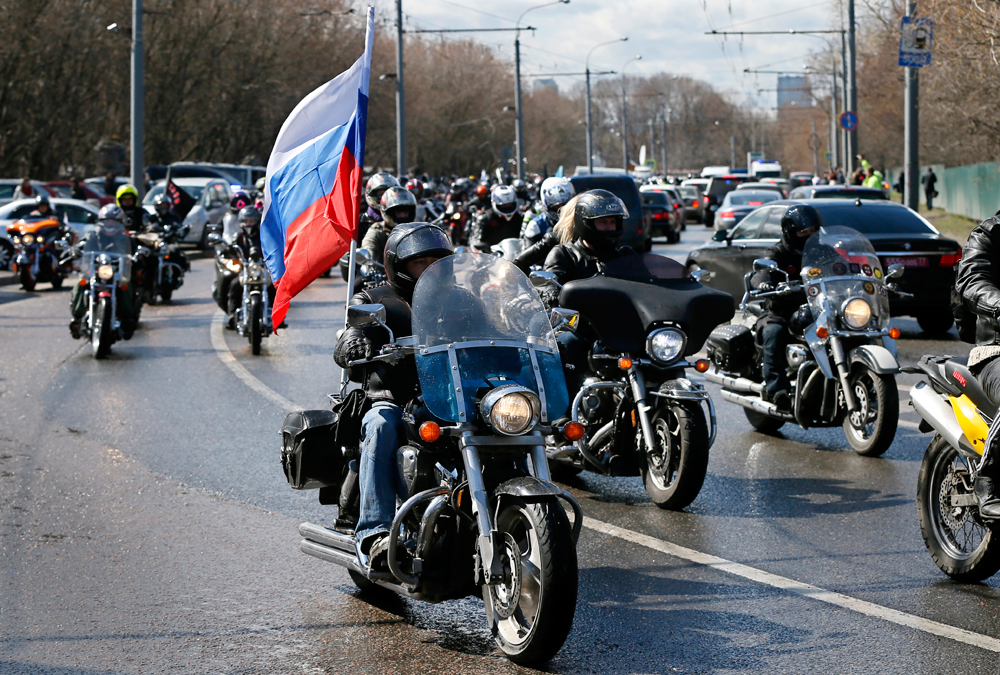
Russian bikers attend a motocross in honor of the 70th anniversary of the Victory over Nazi Germany in the World War II, in Moscow, Russia, April 25, 2015.
EPAMotor processions and tent camps in public places in Russia have been added to the list of events defined by law in Russia as unsanctioned public demonstrations, after Russian President Vladimir Putin signed the corresponding decree on March 9.
It is not important what the act will be dedicated to: an increase in gas prices, an exhibition of retro cars or a biker rally – under the new legislation, it will be considered a demonstration.
According to the author of the legislative amendment, Sergei Kuzin, a deputy from the governing United Russia Party, the amendments will be able to remove legal uncertainties that arise during the organization and staging of public events.
Kuzin says that motor processions can turn into "spontaneous performances and mass violations of public order."
"We will have to depend on officials who, obviously with good intentions, will give out or not give out the right to hold car processions," said Pyotr Shkumatov, coordinator of the Siniye Vedyorki (“Blue Buckets”) public car movement (“blue buckets” is a reference to the “blinkers” on state officials' cars – RBTH).
According to Shkumatov, the law gives the government control over the expression of public opinion and for now does not compensate civil society with any levers of its own.
“Regional officials have received additional instruments for prohibiting public activity and creating the illusion that during the crisis and the impoverishment of the population everything in the country is fine,” he said.
Shkumatov also noted that the amendments concern wedding and funeral motorcades, but in reality no one will limit the freedom of movement of the “private individual.”
“The amendments may also result in the restriction of motor processions and bikers in Russia. However, the law does not contain precise wording on this point – motorcycling in Russia has not reached the level of processions,” said Shkumatov.
The law on unsanctioned public demonstrations has been in effect since 2012. It imposes a fine on individuals for violating the format of holding a demonstration from 10,000 to 20,000 rubles ($130-280) and for causing damage to someone's health or property of up to 300,000 rubles ($4,200).
According to the Russian Interior Ministry, in 2014 demonstrations were held with the creation of tent cities in public places in the Bashkortostan, Belgorodsk, Moscow, Rostov and Chelyabinsk regions, as well as in many others. In 27 regions there were 126 events in which 4,000 people participated using 1,500 vehicles.
All rights reserved by Rossiyskaya Gazeta.
Subscribe
to our newsletter!
Get the week's best stories straight to your inbox